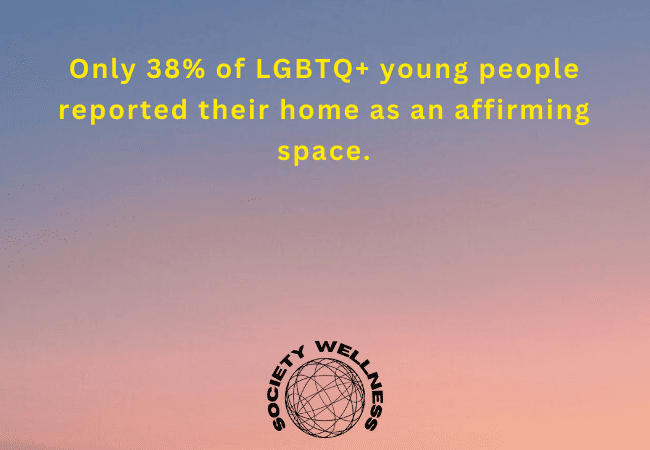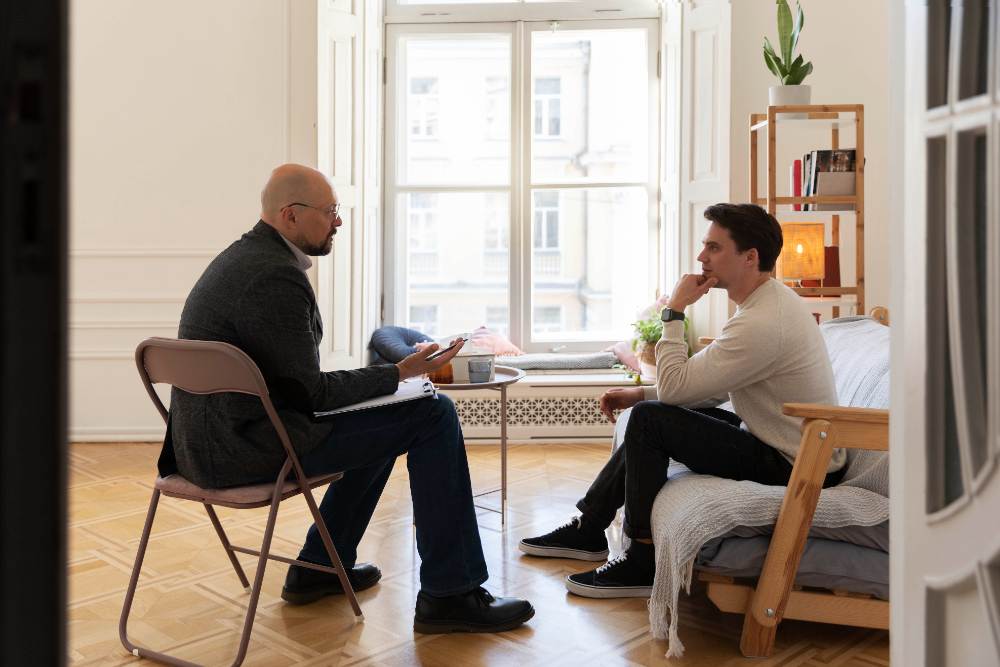Every relationship has its challenges—but LGBTQ couples often face unique obstacles that stem not just from internal dynamics, but from a world that hasn’t always recognized or supported their love. Whether it’s navigating coming out, gender transition, family estrangement, or societal bias, queer relationships carry the weight of identity-based stressors that many therapists simply aren’t trained to understand.
That’s why finding the right LGBTQ couples therapist in Massachusetts is about more than convenience or credentials—it’s about safety, trust, and feeling deeply seen.
In this blog, we’ll guide you through:
- What makes LGBTQ couples therapy different
- How to identify an affirming, experienced therapist
- What services are available across Massachusetts
- How therapy helps address trauma, anxiety, stigma, and more
- How therapy helps couples navigate internalized stigma and relationship health
Why LGBTQ Couples Therapy Is Different—and Essential
Traditional couples counseling often centers heteronormative frameworks: straight, monogamous, gender-conforming couples. But LGBTQ couples might be navigating:
- Coming out together or separately
- Navigating gender transition or affirming care
- Exploring open or polyamorous relationships
- Blending chosen family with biological family
- Trauma histories and identity-related stress
- Unequal access to healthcare, housing, or legal protections
These aren’t just peripheral concerns—they impact communication, intimacy, and emotional safety within relationships. That’s why LGBTQ couples therapy in Massachusetts must be affirming, informed, and inclusive from the ground up.
What to Look for in an LGBTQ Couples Therapist
Finding a therapist who “gets it” can be life-changing. Here’s how to start your search with purpose and clarity:
1. Prioritize LGBTQ-Affirming Training and Experience
Look for therapists who explicitly list:
- Experience with LGBTQ clients and relationships
- Familiarity with non-monogamy or polyamory
- Training in trauma-informed care, queer theory, or cultural competency
- Affiliations with LGBTQ Behavioral Health Centers in Massachusetts
2. Consider Your Relationship Structure
Your therapist should understand and respect:
- Monogamous, polyamorous, or open dynamics
- Transitions involving gender identity, medical care, or name/pronoun changes
- Non-binary or fluid identity expressions in one or both partners
This level of affirmation is foundational in Queer therapy Massachusetts, where diversity of identity is not just accepted—it’s celebrated.
3. Ask the Right Questions
During consultations, ask:
- Do you have experience working with LGBTQ couples?
- Are you affirming of open or poly relationships?
- How do you address power dynamics, intersectionality, and minority stress?
- What’s your approach to trauma in couples counseling?
4. Seek Supportive Treatment Environments
Therapists affiliated with programs like the LGBTQ Mental Health Programs in Massachusetts or those offering services through LGBTQ Behavioral Health Center Massachusetts are more likely to offer:
- Culturally competent care
- Flexible evening or virtual appointments
- Access to group programs or psychiatry when needed
Services Offered: Beyond the Therapy Room
The right therapist doesn’t just help you talk about issues—they help you build tools and confidence for long-term relationship health. Some of the services you’ll find in Massachusetts include:
LGBTQ Couples Therapy Massachusetts
- Ideal for ongoing support in communication, conflict resolution, and intimacy building.
LGBTQ Couples Counseling Massachusetts
- More structured and goal-oriented, often focused on resolving a specific issue like infidelity, family estrangement, or parenting conflict.
Queer Therapy Massachusetts
- A powerful option for couples navigating complex identity layers, transitions, or non-traditional relationships.
Expanded Options for LGBTQ Couples With Mental Health Challenges
When one or both partners are also navigating mental health conditions, integrated care programs can provide additional support:
LGBTQ Partial Hospitalization Program Massachusetts (PHP)
- Day-treatment ideal for individuals in crisis
- Includes couples and family sessions
- Offers intensive therapeutic support without overnight stays
LGBTQ Intensive Outpatient Program Massachusetts (IOP)
- Designed for those needing structured, regular support
- Ideal for clients balancing work, school, or family responsibilities
- Includes therapy, skill-building, and psychiatric care
LGBTQ Evening Outpatient in Massachusetts
- Perfect for busy couples or working professionals
- Offers therapy in the evening hours to accommodate full schedules

Specialized Mental Health Programs That Enhance Relationship Health
When individuals get the support they need, their relationships also benefit. That’s why Massachusetts centers offer targeted programs such as:
LGBTQ Anxiety Treatment Program in Massachusetts
- Helps manage social anxiety, health anxiety, and stress
- Reduces reactivity in relationships and improves emotional regulation
LGBTQ Depression Treatment Program in Massachusetts
- Rebuilds hope, connection, and resilience
- Helps couples navigate one partner’s depression together, compassionately
LGBTQ Trauma Treatment Program in Massachusetts
- Offers somatic and narrative therapies to process past abuse, bullying, or rejection
- Empowers individuals to re-engage with intimacy and vulnerability
LGBTQ Bipolar Treatment Program in Massachusetts
- Provides mood stabilization and relapse prevention strategies
- Equips partners with tools to support one another through mood cycles
Addressing Internalized Stigma and Relationship Health in Therapy
Even in accepting communities, LGBTQ individuals often carry internalized messages from years of discrimination, homophobia, or transphobia. Left unaddressed, this can damage self-worth and relationship dynamics.
How Internalized Stigma Shows Up in Relationships:
- Sabotaging or devaluing one’s relationship because it’s not “normal”
- Difficulty trusting or being vulnerable with a partner
- Believing you don’t deserve love or stability
- Projecting shame or fear onto your partner
How Therapy Helps:
- Reframes these beliefs through compassion and affirmation
- Supports partners in recognizing how trauma impacts behavior
- Introduces shared language for talking about identity, power, and needs
- Encourages mutual validation and accountability
In LGBTQ couples therapy, the relationship becomes a safe container for healing, where both partners can hold space for each other’s growth.
What Makes a Great LGBTQ Couples Therapist?
- Affirms both identity and relationship structure
- Listens with compassion, not assumptions
- Facilitates vulnerability, not blame
- Supports communication, not control
- Works from an inclusive, trauma-informed framework
- Advocates for equity, not neutrality, in the face of stigma
Conclusion
Your relationship deserves support that is rooted in love, understanding, and liberation. The right LGBTQ couples therapist will not only help you manage challenges but celebrate your bond, empower your growth, and guide you toward a more authentic connection.
Whether you’re facing conflict, deepening intimacy, navigating identity transitions, or recovering from trauma, LGBTQ couples therapy in Massachusetts can help you and your partner thrive—together. Call LGBTQ Behavioral Health today at 888.964.8116 to speak with an affirming therapist or learn more about couples therapy and mental health programs designed with your relationship in mind.
FAQ on Finding the Right LGBTQ Couples Therapist
What makes LGBTQ couples therapy different from traditional couples therapy?
LGBTQ couples therapy is designed to address unique challenges faced by queer and trans couples, including identity-based stress, discrimination, gender transitions, non-traditional relationships, and family rejection. Affirming therapists offer culturally competent care that centers your lived experience.
How do I know if a couples therapist is LGBTQ-affirming?
Look for therapists who explicitly list experience with LGBTQ clients, use inclusive language on their websites, and are affiliated with LGBTQ Behavioral Health Centers. Ask about their approach to gender identity, sexual orientation, and relationship structures during a consultation.
Can we do LGBTQ couples counseling if one of us is still questioning their identity?
Absolutely. LGBTQ couples therapy supports relationships at all stages, including when one or both partners are exploring their identities. A skilled therapist will provide a safe and respectful space for open dialogue and mutual understanding.
What services are available for LGBTQ couples in Massachusetts?
Massachusetts offers a wide range of affirming mental health services, including:
-
Queer Therapy
-
Specialized programs for anxiety, depression, trauma, and bipolar disorder
How can therapy help our relationship if we’re not in crisis?
Couples therapy isn’t just for crisis. It can enhance communication, build intimacy, help with life transitions, and deepen emotional connection. Many LGBTQ couples use therapy proactively to strengthen their bond.
How do I get started with LGBTQ couples therapy in Massachusetts?
Call LGBTQ Behavioral Health at 888.964.8116 to speak with a care coordinator. They’ll help match you with an affirming therapist or connect you to one of our specialized programs that fits your schedule and relationship goals.

